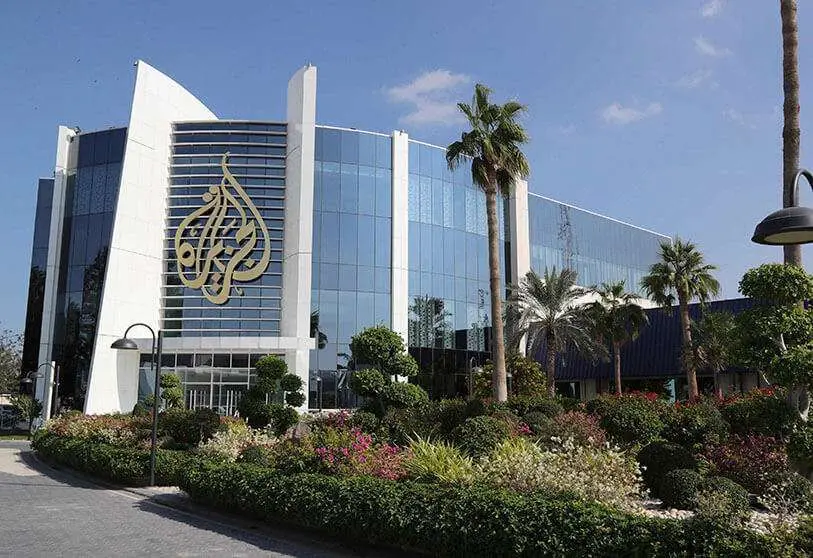25 years of Al Jazeera: a revolution in the Arab world

On 1 November 1996, the continuous news channel Al Jazeera began broadcasting via satellite from Doha. The Qatari channel was the second continuous news channel in the Arab world after BBC Arabic, which began broadcasting in 1994 and ceased broadcasting in April 1996 due to audience failure. Almost all of BBC Arabic's staff of journalists migrated to the newborn Al Jazeera. Created and funded by the Emir of the State of Qatar, Hamad Bin Khalifa Al Thani, Al Jazeera became very popular in the Arab world for its coverage of the Second Palestinian Intifada, the 11 September 2001 attacks in the United States and the subsequent wars in Afghanistan and Iraq.
The Arab television landscape until the arrival of Al Jazeera was infamous, with most TV channels being state-owned and the few private ones owned by businessmen close to Arab rulers. Arab state-owned channels, without exception, focused their news on the activities of their monarchs and presidents, and if these were not enough, they broadcast the activities of their governments. They had hardly any correspondents in the world and the information they provided was controlled through the different ministries of information of their states. The Qatari channel's Syrian journalist Faisal Qassem said of the importance of Al Jazeera's emergence: "For decades, the Arab dictators had gagged us, we had no right to even talk about the price of fish, and then Al Jazeera arrived, like a meteorite in a pool of rotten water".
In the aftermath of the 9/11 terrorist attacks, Al Jazeera became internationally known for its exclusive broadcasting of videos of terrorist Ossama Bin Laden. It even interviewed Bin Laden before the start of the American offensive against Afghanistan on 7 October 2001. He was interviewed by the Spanish journalist of Syrian origin Tayseer Allouni. Allouni was subsequently imprisoned in Spain, accused of belonging to Al Qaeda.

Al Jazeera was the only television network that covered the war in Afghanistan from the side of the Taliban. The bombing by US aircraft of its headquarters in Kabul was a sign that the network was annoying George Bush's government. During the war in Afghanistan it was common to see images with the logo "Al Jazeera Exclusive" on the main international television channels.
Al Jazeera's coverage of the US invasion of Iraq in 2003 led to the loss of Jordanian journalist Tarek Ayyoub, the victim of a US bombing of its Baghdad headquarters on 8 April 2003.
Al Jazeera has not only become famous for its coverage of these wars, but also for its credibility, for its uniqueness, for reporting from the Arab point of view, for its critical reporting of most Arab regimes, for offering an attractive and innovative programming schedule, and for tackling in a very daring way some of the taboo issues in Arab countries.
On 17 December 2010, when Mohamed Bouazizi burned himself to death when police in the Tunisian town of Sidi Bouzid seized his hawker cart, Al Jazeera was the first media outlet to report the event, establishing a connection with a human rights activist in the town. From Bouazizi's death and the subsequent demonstrations, the network gave extensive coverage of the events until Ben Ali's flight on 14 January 2011.
From the beginning of the revolutionary wave that affected many Arab countries, Al Jazeera was the voice of the street. Even demonstrations in Qatar's neighbouring countries such as Kuwait, the Sultanate of Oman and Bahrain were widely covered by the network. These oil-producing countries twinned with the emirate of Qatar were not spared from anti-authoritarian protests.
Al Jazeera's reporting has strained relations between the Qatari government, its main funder, and several Arab governments, including Saudi Arabia, the United Arab Emirates, Bahrain, Egypt and, on some occasions, the Moroccan government, which closed Al Jazeera's offices in October 2010 for its coverage of the Western Sahara conflict.

Al Jazeera was one of the main reasons for the political crisis between Saudi Arabia, Egypt and the United Arab Emirates and Qatar since 2017, which ended in early 2021. The quartet set 13 conditions for restoring relations with Qatar, including shutting down Al Jazeera. Doha not only refused to close the network, but did not comply with any of the 13 requests.
Al Jazeera is criticised for its blackout on Qatar, as it barely reports on what is happening inside the country, and for its moderate Arab political Islamist line of reporting. Some argue that the network is a powerful tool of Qatari foreign policy. However, it is recognised for its credibility and professionalism, and for covering conflicts that are not covered by the major international news agencies and international news networks.
Despite criticism and accusations, Al Jazeera has represented a real revolution in the Arab world because it created a new way of reporting that penetrated millions of Arab homes. Twenty-five years after its launch and despite the fierce news competition in the Arab television landscape, Al Jazeera remains the most watched and influential continuous news channel in the Arab world and, most importantly, offers credibility and a necessary and indispensable point of view in the region.

